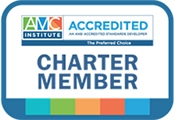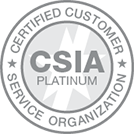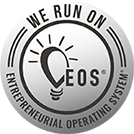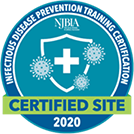Members of the American Society for Histocompatibility & Immunogenetics help advance a different kind of emergency service.
When a person thinks of medical emergency services, what often comes to mind is an ER full of patients with broken bones or extensive wounds. But there are less visible medical emergencies as well, and one of these is organ failure. In the United States alone, over 100,000 people are on the national transplant waiting list. Unfortunately, performing an organ or stem cell transplant doesn’t just involve a high-risk surgery — it also requires that the donor and recipient be a perfect genetic match. Otherwise, the recipient’s immune system will likely reject the transplanted organ or stem cell.
This is where the American Society for Histocompatibility & Immunogenetics (ASHI) comes in. “To put it in the simplest terms, ASHI members are the folks who work in labs worldwide to match donors with recipients to ensure the most compatible match is made. A perfect match means a longer life for the recipient,” said Katherine A. Giovetsis, CAE, IOM, CEO of ASHI.
The Evolution of Transplant Research
“Immunogenetics” is the study of the body’s immune system, and “histocompatibility” is the compatibility of two different individuals’ tissues. The major signifier of whether two people are compatible is the human leukocyte antigen (HLA) system. HLAs are a type of molecule that affect the body’s immune responses, so if two people are in fact compatible, one can receive an organ or stem cell from the other without experiencing an immune reaction that may result in the rejection of the transplanted organ or cell.
The study of human histocompatibility dates back only to the 1950s, but today it’s the subject of scientific research around the globe, and the field continues to pursue technological advances in order to match patients and organs as closely as possible. As its contribution to the ongoing development of the field, ASHI works to advance the science and application of histocompatibility and immunogenetics — and, therefore, patient outcomes — by providing its community of clinical and research professionals with a forum to share information and advocating for the highest standards of laboratory testing.
A Focus on Patient Outcomes
Of ASHI’s nearly 2,000 members, the majority are active in transplantation medicine. “The time-critical process of transplantation is ever-evolving to bring faster, more detailed matches to our patients,” said Giovetsis. “Lives are on the line, and everything we do is to improve patient outcomes.”
One way ASHI ensures members are able to assist more patients and achieve the best possible patient outcomes is by providing an extensive online education platform, ASHI University. The continuing education modules offered include everything from lab management to technological subjects. By regularly updating its educational database, the organization helps members stay on the leading edge of information and innovations in the field.
Another way ASHI improves patient outcomes is by talking to the patients themselves. “ASHI has also invited transplant patients to join certain committees so that we can get their perspectives on the donation process,” Giovetsis said.
Moving Forward by Working Together
Like most organizations in early 2020, ASHI found itself having to change its annual meeting from in-person to virtual. With that change, the Board of Directors decided to provide free registration to its Virtual Global Annual Meeting not only to ASHI members but also to members of HLA organizations around the world, including the European Federation for Immunogenetics, the Asia-Pacific Histocompatibility and Immunogenetics Association, and the Arabian Society for Histocompatibility and Immunogenomics.
“A global pandemic doesn’t lessen the need for transplants,” Giovetsis said. “Providing continuing education to the entire HLA community ensures better transplant patient outcomes. This enforces ASHI’s vision to improve the quality of human life and health through the translation and implementation of scientific innovations to clinical practice.”
There are, of course, other ways to work together to support the community. This is why ASHI is active on Capitol Hill, where it lobbies for legislation that improves the speed and outcome of organ transplantation.
“In the first quarter of 2022, ASHI continued to closely monitor developments surrounding potential regulatory changes to laboratory-developed tests (LDTs) used in support of transplantation,” said Giovetsis. The VALID Act would require histocompatibility testing to be subject to approval by the Food and Drug Administration (FDA). Because such oversight would not improve LDT testing but would instead hinder the process of patients receiving their transplants, members of ASHI’s Executive Committee met with members of Congress to educate them on transplantation and request that histocompatibility testing be excluded from FDA oversight.
By working to educate not just its members and its colleagues around the world but also government officials, ASHI further ensures the field of histocompatibility will continue to improve the speed and accuracy of its transplant matching processes in the future — and therefore the lives of the patients who rely on transplants for their own bright futures.




